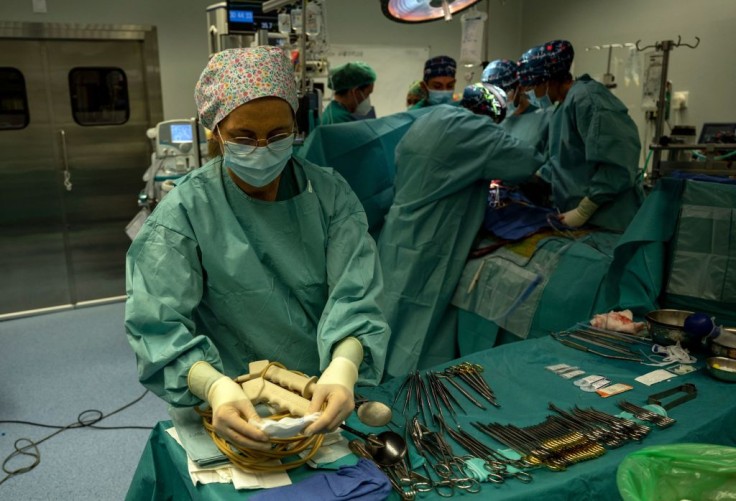
David Bennett, the first man to receive a transplanted pig's heart, died of heart failure due to several factors and not because of organ rejection, leading the doctors involved in the trial to call the operation a success.
The 57-year-old dad received the genetically modified heart on January 7 after the Food and Drug Administration (FDA) gave emergency authorization on New Year's Eve. He had been hospitalized for six weeks with a life-threatening arrhythmia before the transplant and connected to a heart-lung bypass machine.
Bennett had end-stage heart failure and did not qualify for a traditional heart transplant. He died two months later. Doctors involved in the University of Maryland Medicine study said in a paper last month that a complex array of factors caused Bennett's heart failure.
Findings on Bennett's autopsy did not show organ rejection
Dr. Bartley Griffith, a transplantation professor at the University of Maryland School of Medicine and the study's co-leader, said that when the heart was first transplanted, they were incredibly encouraged by Bennett's progress. He added that the patient's heart was strong, almost too strong for his frail body, but he had a strong will to live.
Griffith, also the clinical director of the school's cardiac xenotransplantation program, said that their findings from the autopsy did not show evidence of rejection. Instead, they saw a thickening and later stiffening of the heart muscle. That led to Bennett's diastolic heart failure, which means his heart muscle was unable to relax and fill his heart with blood as it should.
The school said the transplanted pig heart may have failed because a drug that is supposed to prevent infection and rejection might have damaged the muscle. According to the release, the transplanted heart was also found to contain evidence of DNA from a latent pig virus called porcine cytomegalovirus (pCMV).
It was first detected several weeks after the surgery through highly sensitive testing and was later confirmed during the autopsy of the organ, according to NBC News. Whether the said virus damaged the heart is still under investigation.
A new era in organ transplantation
Infection control measures were in place, and the pig's heart had been tested just before the transplant. Study co-leader Dr. Muhammad M. Mohiuddin said they consider this an important learning experience, and knowing what they know now, they will alter some of their practices and techniques in the future.
Xenotransplants, the term used for transplants from a nonhuman species to a human, have been researched as the demand for organ replacement increases. According to the FDA, ten patients die awaiting donated organs per day.
According to the Harvard University Medical School, cow and pig tissues have been used successfully for valve replacements. These valves typically last about 15 years and don't require the use of anti-clotting drugs.